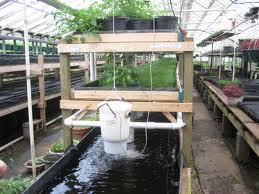
At the turn of the century, urban areas were teeming with food production facilities. Mind you, this was the 19th century. As food production joined the global supply chain, vast tracts of industrial spaces that had once housed abattoirs emptied and stood vacant.
Only since the more recent century gave way (and really the past decade) has food production returned to these spaces. In places like Milwaukee, home to MacArthur genius award winner Will Allen’s Growing Power, and Denver, which is home to Growhaus, inventive urban food systems have returned to these long barren centers of population.
Aquaponics systems, where fish are raised in a closed loop structure that cycles their waste into plant beds that provide nutrients for fresh produce, use space in unique and highly efficient ways to grow protein and vegetables for ever growing urban locales.
In this month’s Delta Sky magazine, several aquaponic outfits were highlighted. In a warehouse just outside downtown St. Paul, Minnesota, Garden Fresh Farms is producing rainbow trout along with heads of lettuce and basil, all of which is sold to local food establishments. The only inputs are water and fish food. Cold water, a must for trout comes from frigid Minnesota winter supplies. As the water warms and fills with waste, it is separated and pumped to tanks full of tilapia with the waste-infused water going to the vegetable plots.
In Paul Greenberg’s Four Fish: The Future of The Last Wild Food, he discusses the state of aquaculture, or the farming of fish. Aquaponics takes this to the next level by removing fish from open water pens that suffer from contamination and pollution, by placing them in formerly empty warehouses and closing the loop of waste and adding vegetable production. It’s regional model of food production serves locavores, entrepreneurs, urban denizens, and wild populations alike. This may be a truly sustainable option for food production, especially Allen’s operation which works to educate inner city residents and give them access to food in food deserts.
[Image source]




